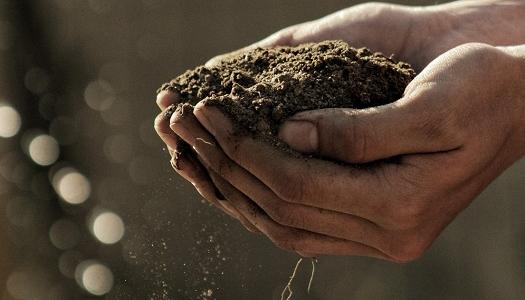Global Leadership for Food Security
Featured
Share online

Photo Credit: Gabriel Jimenez on Unsplash
On May 13, 2021, RRU’s MA Global Leadership (MAGL) programs hosted a panel on Global Leadership for Food Security. Facilitated by Dr. Wanda Krause, panelists included Brenda Schoepp (graduate of the MA Global Leadership), Rebecca MacKenzie (current MAGL student), and Catherine Etmanski (professor and director of the School of Leadership Studies).
Food security, as defined by the United Nations’ Committee on World Food Security, means that all people, at all times, have physical, social, and economic access to sufficient, safe, and nutritious food that meets their food preferences and dietary needs for an active and healthy life. However, the 2021 Global Report on Food Crises, produced by the Global Network against Food Crises, highlights a dramatic increase in the numbers of people facing acute food insecurity. Because of the acute nature of this growing crisis, many analysts are focused on immediate solutions overlooking the important broader nature of food insecurity and access.
The three panelists on this webinar are thought leaders dedicated to finding solutions to the realm of food challenges. They offered concrete ideas of how to approach local and global resilience to address this critical global crisis through global leadership approaches and systems thinking.
Food as a Universal Human Right
Brenda Schoepp suggested that to fully appreciate our leadership role in food systems and food security, we must first address the lens in which we see ourselves and others. As she further described, leadership requires us to ‘be the guest’ and ‘walk beside’ those persons where we hope to have impact. The challenge is complicated for there is more than enough food to feed the world while global food insecurity, hunger, and malnutrition are increasing. The production of food does not assure access to it.
In her presentation, she further explained that universal challenges to food systems are complex. Leadership is needed in addressing such areas as land access, water preservation, knowledge transfer, tools and technology, literacy, financial literacy, and infrastructure.
In her words, the creation of resilient communities through the acceptance of food as a universal human right and the understanding that a system is really the people within it is where we start, for “food is the economic, social, health, ecological, cultural, community and justice connector.”
Hyperlocal Tourism to Get a “Taste of Place”
Rebecca Mackenzie pointed out the COVID-19 pandemic shook the tourism and hospitality sector right to its roots, disrupting food systems like never before. Restaurant shutdowns resulted in growers and producers having to find new markets for their goods - many shifting to online markets. Distributors had to reconfigure packaging to sell tier goods direct to consumer and retail. Foodservice operators had to manage logistics to move to takeout and delivery. All the while, consumer interest in local food, cooking, gardening and preserving increased. Recognizing that a paradigm shift is required to rebuild the tourism industry right, the CTA has taken a systems approach to developing the largest tourism recovery program in the Province of Ontario - the Great Taste of Ontario, encouraging hyperlocal travel focused on taste of place.
Rebecca highlighted the program addresses market readiness to ensure the highest level of safety protocols are being followed by business operators across the culinary tourism value chain, working with Destination Marketing Organizations (DMOs) to develop products that showcase operators with sustainable practices. This is being achieved through developing a new Culinary Cultural Diversity Program, and creating a gamified experience for consumers that reward their hyperlocal travel with benefits that go back into the operators pockets and pay it forward to charities working in food security and food access.
Leadership for Global Food Systems Transformation
For Catherine Etmanski, food is much more than a human necessity; it is an entry point into diverse topics such as: culture and tradition, health and well-being, small and large-scale business, ecology and politics, science and the arts, poverty and social justice, land use and civil society, global trade, Traditional Ecological Knowledge, and more. From seed to table to the compost pile, the policies and practices related to all aspects of the food cycle create rich sites for learning and multiple opportunities for leadership.
Drawing from her book titled, “Food Leadership: Leadership and Adult Learning for Global Food Systems Transformation” Catherine offered examples of the types of leadership needed to address the increasingly complex and interconnected socio-economic and environmental challenges associated with food and agriculture. Whereas much leadership theory continues to be developed from cases in business, social movements, or other, more traditional leadership sectors, leaders and educators are invited to look to their plates and, by extension, to local, small-scale farmers and to nature itself as sources of inspiration in their work.
References and Resources
2021 Global Report on Food Crises (2021, May). Global Network Against Food Crises. https://www.wfp.org/publications/global-report-food-crises-2021
For more information on the RRU Global Leadership programs, available in both on campus and blended delivery formats, please reach out to us via email.
To listen to the webinar, click here.